|
Article by Two Wise Chicks
Post Design by Christy Zigweid Photo by Unsplash via Pixabay CC (Photo made using @WordSwagApp) "We are tied to the ocean. And when we go back to the sea — whether it is to sail or to watch it — we are going back from whence we came.”
There's something about the ocean isn't there?
Even when the weather is inclement I love to go watch and listen to the waves crashing about, the stones being thrown around, the sand being churned, the constant ebbing and flowing - sometimes the noisier the better!
Sunsetting at Claycastle, Youghal.
What I particularly love about this time of year though is the light. The colours dance and change more often as the Summer eases its way back into our lives.
It's therapy. Most of us think of the sea, rivers or lakes when we imagine holidays. We associate water with fun, refreshment, exploration, self soothing. We retreat to showers and baths when we're stressed. Youtube is awash with mindfulness and relaxation clips with water sounds in the background. Our breathing changes when we hear normal waves, we slow down unconsciously and match the pace. And the physical and emotional effects of that are profoundly positive. We tend to turn to water for serenity, for clarity, for all that is life affirming.
Splash at Ballinwillig, East Cork
Science agrees. Environmental scientist Mat White has done several interesting studies and found that "proximity to the coast was positively associated with good health, with a small, but significant increase in the percentage of people reporting good health among populations residing closer to the sea".
Near Wexford
Another academic called Depledge presented people with landscape images that had increasing amounts of water in them. He found that "going from a pond right through to a coastline, with increasing amounts of water in the images, people showed a strong preference for more and more water in the images.
We have evidence that natural environments promote physical activity, reduces stress, restores cognitive ability and increases social interaction. Just think of the average day 'out the strand' - isn't that what happens? We run, throw stones, play with dogs and children. We salute strangers, chat to them about each others' pets, the weather.... Then we get back into the car and feel.. tingly, 'glowy' - better! All good. Another thing that happens near water is exposure to negative ions - and these tiny things have enormously positive effects on our brains. The more movement in the water, the more negative ions are present. And we think this explains why we find crashing waves and water-sports so utterly exhilarating! In fact, this idea taken so seriously as a theory that negative ion generators are being tested as treatment for depression in Columbia University. And how happy do children look when splashing around in puddles, real or plastic?! Even in urban settings, "from fountains in squares to canals running through the city... again people hugely preferred the urban environments that had more water." (Depledge again). Future research at the ECEHH (European Centre for Environment and Human Health - bit of a mouthful) includes studies looking at the effect of video screens showing aquatic environments in elderly care homes, and the benefits of views over sea or water from home or hospital windows. It sounds nice doesn't it? Here's a clip I took in Killarney - and even though it's a lake, not the ocean, I still found it mesmerising to be there, watching.
Evening stroller at Garryvoe
And what's your favourite colour? Our affinity for water is even reflected in the near-universal attraction to the colour blue. We're naturally drawn to aquatic hues and blue is overwhelmingly chosen as the favourite colour of people around the world. Also, marketing research consistently finds that we associate blues with qualities like calm, openness, depth and wisdom.
"Let (sea)food be thy medicine" - Hippocrates It seems to make evolutionary sense too - we need water to live obviously, but also we benefit hugely from the creatures that live in the water. Neuroscientist Michael Crawford of the University of North London has proposed that our ancestors were devotees of the sea, and that "this devotion has paid off by allowing us to develop larger and more complex brains". Moving towards the sea gave us a marine diet that was packed with omega-3 fatty acids, essential fatty acids that promote brain cell growth. He theorises that this is why human brain growth began to increase exponentially once we left the woods and headed for the beach. We have also learned that people who eat fish regularly, are less like to suffer from depression than those who don't. Indeed fish is a symbol of happiness and good health across a broad spectrum of religions and cultures. So I don't know how you feel about eating fish - I'm not a huge fan myself actually. But I am a huge fan of the sea, and am cognisant of its healing effect on me, and on many of the clients I work with. I am utterly grateful to live and work a mere five minutes from waves and fresh air and I find myself trotting down to the quay or the beach every week to fill my lungs with the delicious saltiness of it all. For those of use living near the coast (and that's all of us in Ireland really!) it's a resource worth using. Get out there, go for a walk. Breath in that air, feel the wind in your hair, the seaspray on your skin! And for those few moments or hours, immerse yourself in the experience (or even in the water!! #brrr) - go with the rhythm of it - there is plenty of evidence to suggest you'll feel better afterwards. The sea is resilience at its beautiful best. Just as we are.
That's a little clip of some sanderlings I had fun watching on Youghal beach last week - cuteness!
About the Authors
Sally O’Reilly
Sally wants to help create a world of compassion for ourselves and others. A world where mistakes are allowed, gender roles don’t exist, sex ed in schools is a real thing and everyone dances – lovely! As a psychologist and psychotherapist in Ireland, she’s worked for nearly twenty years in private practice, with adults and trainee adults of all ages. She blogs on her own website, is a feature writer for super duper parenting website Voiceboks.com, does print and radio media work and has been known to Tweet. She’s the one running our Twitter page! When she’s not working, you will find her engrossed in Science Fiction or some dark and Danish TV show, listening to music, watching the sea (while really, really wishing it were warmer), or figuring out how to work Lightroom on her Mac. All while munching on Bombay mix. #multitasker! She’s happiest when dancing and erm…. her cat has his own Facebook page. We won’t link to that, it’s too embarrassing..
Tanya Tinney
Tanya looks forward to living in a world where people know their worth, respect boundaries, and always have time for tea and chocolate. A magic bubble that protects her from sticky fingers, hormonal girls and dog hair would be awesome as well. Her education and much of her training is in the areas of psychology and human potential. She worked as a licensed psychologist for over 14 years, with 10 of those years spent building her own successful private practice. In total, she has over 20 years of varied experience working, volunteering for non-profit agencies, and consulting to small business. Most recently she has launched her dream online coaching practice where she gets to work with motivated, amazing women who need help overcoming life’s hurdles. Exciting times! She has lived in Ireland, Ethiopia (okay, just 6 months), Canada, and currently lives in central Texas with her husband, three girls (including fraternal twins), two dogs and three cats. When she’s not finding ‘everyday moments’ to write about here or on her own blog, you can find her being walked by her dogs, unearthing unidentifiable food-objects under the couch cushions or baking her famous banana bread. Tanya runs our Facebook page – and not to be outdone by Sally’s cat, her dog has its own Facebook page too.
1 Comment
Yes, you read that right. I am quitting. I am going to stop this circus of being stuck inside my head. It’s been holding me back in my writing, parenting, and interactions with others for a long time, often making me feel as though I am not good enough at anything; a dangerous place to be when suffering from depression and anxiety. I’m prone to the perfectionism trap as a writer and creative and it has swallowed me whole. I’ve been bogged down with feeling like I have to do everything: creating a platform, managing social media, writing a blog, writing the novel I’ve been working on since 2013, and a long list of other things indie authors are in charge of. I cannot get past the mental block inside myself when I write and often feel as though I fall short, unable to tell a good story or help anyone. All of this has become a vicious cycle of wanting to help but feeling as though I’m not, so I second guess everything and dig myself back into the hole I’ve tried so hard to get out of. Day after day the stress of being locked inside my head, analyzing every move I make, has forced me to pull away from my family and miss out on precious moments. It’s tearing me apart. Outside I refuse to be a supermom, but inside I am doing just that, feeling like I have to do everything on my own. I’m here to say, I can’t do it on my own. And that’s okay. Because I’ve realized I am the one holding me back. The constant chatter in my head fed by depression and anxiety has clouded everything I do; I often can’t see through the thick fog hanging over me. While I am okay for a while, it’s not long before the chatter starts again, and I fall right back into that dark place, defeated and stuck before I’ve even moved. That’s no way to live. This winter I’ve been caught in my own internal snowstorm, laden with icy comment daggers. Earlier I said I was quitting. Am I quitting writing? Absolutely not. Life without writing would be like hell. Am I quitting on myself? As much as my depression would like me to, I will not give up. But here’s what it does mean. It means that I am going to do things that make me feel worthwhile. And as I start to heal from all of this negative chatter and move forward, I will write about it and continue to write fiction stories. It’s time for me to step back get my priorities straight. I need to take care of myself or I fear I won’t be here to see what happens on the other side. If you are struggling and want to give up, please don’t. Take a break. Do something you love. Give yourself permission to take the time to do these things, otherwise, you won’t be helping yourself at all. I said in another blog post, “My illness doesn’t define me.” Your illness doesn’t define you either. Stay strong. You can quit the things that make you miserable, but don’t give up on yourself. The world needs you. About the Author
A few people have asked me whether I know what I'm going to blog about before I start writing. Sometimes yes and other times no. To help me, I've made a list of topics I want to cover and keep adding to it, but I write whatever I feel like that day. I make sure I plan a time to sit and write, but don't know what will come out until I write 'hello...' I normally type very quickly and the words flow, so I've never started writing a blog and deleted it or not been able to finish it. People give me topics sometimes that they are interested in and I'm able to write about them, but others I don't have any experience of and want to keep my blog open, honest, and helpful. I can't write about what I have no experience or feelings of. Something might happen in a day or I might be thinking of something and know that's my next blog and I can start it mentally before getting to my computer. I like to think about what would have helped me to read when I was diagnosed and focus on that to help others. I find blogging therapeutic because whatever I have written about I have been able to think about, reread, read it to my husband, and talk about it. I also know my loved ones can read it and understand me better. Another question I am asked a lot is what I feel like being so open on the internet. Knowing anyone can read it, using my real first name, using my personal photos, and sharing the links on my Twitter and Facebook accounts. So how does it make me feel? At first I was nervous. It's a big deal to say "this is me" so publicly. But it all started with my first vlog on YouTube about my depression. I needed to speak about it even if it was to a camera. I planned to keep the video for myself but after watching it, I got the courage to put it on. I'd relied on YouTube videos for information when I was first diagnosed and thought the more videos out there, the better for others. It soon turned into blogging because I prefer to write and my camera wasn't the best! I was a little worried about my new work colleagues and future new friends reading it if they came across it but soon got over this. This is me and I'm proud to be me and what I'm writing about. New people in my life will soon get to know the real me and my blog is 100% real. I'm not too worried about trolling. It happened on my Twitter account so I replied a little, then blocked the person. I didn't need to deal with that or justify myself, but I wanted to put my side across and I didn't argue or get personal, I just stood my ground and fought the corner for others. What they said about depression was harmful and needed a reply! I am worried whether it isn't getting viewed or getting shared enough. I want strangers to see it and I want it to reach people and do some good or give someone some hope out there. But then I have received thank you private messages from people telling me how much the blog has helped and my page views keep going up so that is why I'll continue to blog. Most importantly I enjoy doing it and it helps me too. About the Author
Written by David James Edited by Maureen Danielle G “I spoke so much about being a manic-depressive. I want to bring everyone back to my earliest memories of this companion of mine. Some people call this companion I have an ailment, or worse a terrible nightmare from which some people cannot awaken. I know that I have nothing to be ashamed of. I have nothing that should garner a stigma.” Richard Dreyfuss, Academy Award Winning Actor A while back, my Twitter friend Linda Diaz of Lauryn's Law tagged me in a post for an article from Washington Post about Rachel Griffin. Rachel is a singer/songwriter in New York, as well as a grad student at NYU. Rachel suffers from Mental Illness, and she recently put a call to action on Twitter with the hashtag #iamnotashamed, so that people can openly disclose their mental illness. The comments and Tweets were overwhelmingly positive. For many of you reading this, you may be thinking, "How can she do anything if she has mental illness?" or "Why would she admit to this?" The answer is easy. By creating awareness, Rachael is creating understanding. There is so much stigma and stereotype surrounding mental illness around the world, and many people opt to dwell on that as opposed to the reality. They picture people with mental illness as extras from One Few Over the Cuckoo's Nest, walking around institutions in bathrobes, drooling on themselves; or as maniacal characters such as the Joker from The Dark Knight; or the depressed, black clad Emo such The Cure's Robert Smith . Sufferers of mental illness are all of the above and none of the above. Yes, there are the tragedies of famous people like Vincent Van Gogh, Virginia Woolf, Ernest Hemingway, Kurt Cobain, Heath Ledger and Robin Williams who struggled with mental illness. All were brilliantly creative people who battled their demons, but in the end, lost. These are the stories that we are all familiar with because of their fame and tragic end. But there are people who have triumphed as well. Abraham Lincoln, Theodore Roosevelt, Winston Churchill, John Nash of A Beautiful Mind fame, Charles Dickens, former Today host Jane Pauley, 60 Minutes reporter Mike Wallace, NFL Hall of Famer Charles Haley, Princess Diana, and Star Wars’ star Carrie Fisher. That is not to say their lives were not without incident, but they were able to thrive. I admire these people as well as feel their pain. I too suffer from clinical depression, and have for many years. When I was young, I knew there was something different about me. I would go through long spells where I felt off, knowing that something was wrong, but not knowing what. I would sit in class and think that I was the only one that felt that way. As I got older, I would begin to feel desperate, to fear the future, to worry about little things, to blow things out of proportion, to lose sleep over things I had no control of, to feel lonely and sad, and to feel so down, it seemed that there was no way up. I took comfort in beer, and would drink enough to help me calm down and sleep. I would often drink to excess with my friends on weekends. I thought it was part of having a good time, of being in my 20's and fitting in, I was smart enough to know alcohol was a depressant, but I didn't care. Looking back I realize it was because I felt so low that I would use it as an excuse to numb myself to the perceived reality around me. In my 30's, as my first marriage was falling apart, in large part due to my self-destructive behavior, I finally reached out for help. I spoke to my doctor and was prescribed for Zoloft. After a while, it began to work. The feelings of despair began to dissipate, and the anxiety that had helped provoke my fears was lessened. For the first time in years, I felt somewhat normal, and began to work on putting my marriage back together. Unfortunately, I made the mistake that many do; I declared myself cured and stopped taking my medication. Things quickly fell apart again, and because of that, so did my marriage. I was soon divorced, living in a small apartment and seeing my son Peyton every other weekend. I went back to not only beer, but vodka as well. I would come home and mix a strong drink to help me calm my nerves, relax, and blot out my feelings so as to get to sleep. I never considered myself an alcoholic, I never turned to the "hair of the dog" in the morning, never missed work or even drank at work, but I could see myself becoming overly dependent on it. My lowest point came after a minor outpatient procedure. The procedure was on a Friday morning, and I spent the afternoon and evening in an anesthesia induced haze. The next morning, as the last of the anesthesia wore off, and my mind raced, I felt the most incredible psychological pain imaginable. I wept, cried and at my lowest thought about how easy it would be to stop the pain by taking all of the Ambien in my medicine cabinet. Then I remembered my son, my recently widowed father, and other family members, and knew I couldn't. I made an appointment that Monday and renewed my prescription for Zoloft. This time, it didn't work like before, and my doctor changed me to Cymbalta which did the job. I knew then that this time that the depression was not temporary, but my permanent companion. Once I had my mind back in order, I got my life in order. I soon met the love of my life, Lisa, who became my wife. We had a beautiful daughter, Emmalee, bought a new house, and all seemed well, as I was living the American Dream. Well, all this came crashing down on October 8, 2014, when I received the call that Peyton, just 13, had hung himself; he later passed away five days later on the 13th. This could have plunged me into a darkness from which there would be no return, but I was determined that I would survive. I went and had my meds adjusted, got into counseling and support, and made a conscious decision not to let myself find comfort or escape in anything; be it food or alcohol. Apart from a slip on the first New Year's Eve without Peyton, I have been well, and continue to do so. Part of my recovery meant preserving Peyton's memory and helping others. Thus I began the #Products4Peyton and got deeply involved with the #PeytonHeartProject. Both allow me to open talk about Peyton's death, suicide awareness and prevention and advocate for mental illness. Every day is a challenge. The fog has lifted from Peyton's death, and I never know what will trigger the tears, sadness, or anxiety. I take my medication, talk openly about my struggles and try to help others to also open up and seek help. My hope is that one day, the stigma of mental illness will be lifted, and the people suffering will be treated with the same dignity and respect that other illnesses receive. Until then, I will continue to tell my story and proudly proclaim "I am not ashamed of my mental illness!" Author's Note: The first time I posted on Twitter, I received a tweet from someone under the handle of @jailina_ telling me that because medical science hadn't conclusively proven mental illness, then there really wasn't anything wrong with me, and that it was all in my head. If you deal with mental illness, and someone tells you this, ignore them. Studies of the human brain are still going on, yet the human mind is still a mystery. Stay strong, ignore the naysayers and tell them #Iamnotashamed. David James is a 50 year old teacher and coach from Conroe, Texas, and also a mental illness advocate. He founded #Products4Peyton and is involved with the #PeytonHeartProject, following his son’s death.
David has also lobbied in Texas for the passage of HB 2186 which requires all school districts in Texas to provide mandatory suicide awareness and prevention training for all staff members. It was signed into law by Governor Greg Abbott in June of 2015. Seasonal Affective Disorder (SAD) is a mood disorder suffered by half a million people every winter in the United States. It typically flares up between September and April, peaking in December, January, and February. Symptoms include: extreme mood changes, anxiety, and inability to deal with stress, depression, loss of self-esteem, lethargy, overeating and social withdrawal. Diagnosis is typically made after three consecutive winters with these symptoms, followed by total remission in the spring and summer months. A milder version of the disorder is known as the “Winter Blues.” If you think you or a loved one may be suffering from either of these conditions, here are six tips to get you through the winter months: Image via Pixabay by unsplash 1. Consult a doctor. SAD symptoms can actually be confused with other medical conditions such as hypothyroidism and certain viral infections. Always consult a medical professional for a proper diagnosis to ensure the correct and best treatment for yourself. If you suspect a loved one is experiencing SAD symptoms, offer to accompany them to the doctor or help make the appointment. When you’re feeling down, taking that first step toward action can be the most difficult. Knowing someone is in your corner and willing to help makes a big difference. 2. With the support of your medical professional, consider light therapy. Light therapy mimics outdoor light and aims to cause a biochemical change in your brain to improve mood. Patients sit with eyes open in front of a light box containing fluorescent bulbs, which emit a different kind and intensity of light than those commonly found in households. Sufferers of SAD produce an excess of melatonin during the low-light months of fall and winter, which can cause debilitating depression symptoms. Exposure to bright light can suppress this over-production and help regulate one’s internal clock, reducing negative symptoms. Daily treatment of light therapy has shown improvement in 80% of participants. Bear in mind that there are mild symptoms of light therapy including: eyestrain, fatigue, irritability, nausea, headache, and insomnia. Work with your doctor to reduce these issues by moving farther from the light box, changing the time of day you employ light therapy, and reducing treatment time. 3. Eat healthy and get plenty of exercise. This is good advice year-round, but especially during the colder months when it’s easy to get comfortable cozying up inside with comfort food. Fight the urge to load up on carbs. They may give you an initial burst of energy but they can leave you feeling tired. Instead, stick to healthy options like veggies, fruits, and lean meats. Couple healthy eating with regular aerobic exercise to elevate your heart rate, even if it’s just a brisk walk around the block. When your body feels good, your mind often follows! 4. Stay social and involved as the winter months approach. Plan enjoyable social activities throughout the winter season. Brave the cold and go on group outings with friends to see movies, plays, and concerts, or throw a winter-themed costume party at your place. Make it a point to get some social interaction all winter — not just on the holidays! And if you notice a loved one is isolating themselves, don’t ignore them. Offer to make them a healthy dinner one evening or suggest a walk in a local park. People with SAD may need help from others when it comes to staying social. 5. Consider a dawn simulator alarm clock. Though it hasn’t been studied with SAD as much as light therapy, waking up with a dawn simulator may also ease your symptoms. This kind of device gradually increases the amount of light in your bedroom in the morning to imitate the rising sun and wake you up in a more natural way. It can help reset your circadian rhythm and improve your mood, and is a safer option for those suffering from both SAD and bipolar disorder. 6. Nip seasonal affective disorder in the bud. If you’ve been officially diagnosed, prepare yourself before it hits. Begin using a light box at the beginning of the fall, even if you aren’t yet feeling any symptoms. Do your best to spend time outdoors every day, regardless of the season. Even if it’s cloudy, the effects of sunlight are still available and beneficial. Finally, consider speaking to a mental health professional specializing in cognitive therapy, as this can be another effective treatment for SAD. Always consult a medical professional before beginning treatment for seasonal affective disorder. With the right diet and exercise, social interaction and light therapy, you can make your SAD a thing of the past. ABOUT THE AUTHOR
The weights kept piling up from 2001 until 2011. It started with depression. Depression gave way to fear and confusion. The abundance of failures caused a self-imposed isolation. Isolation led to addiction. Addiction led to insomnia. Insomnia led to mania and psychosis. Mania and psychosis led to frequent hospitalizations. Hospitalizations led to more and more medications. More medications led to agonizing side effects and deeper depression. Now that it is all on paper I can finally see and understand why the Holidays have always been a hard time for me. When I think back to when I was a kid I had always loved the holidays. From the age of 9 I was the first person on the block with lights up. I would go on a long hike in the woods with a saw and burlap to cut down evergreen limbs so I could bring them back home and wire together a wreath in my garage. I would place a candle in every window and of course I would set up that old toy train set in the basement. You know, the one that worked all of about 3 times the whole month of December but amazingly it was always when you brought someone down to see it. I would spend the rest of the month down there trying out new track combinations, searching tirelessly through boxes of ornaments looking for that little tin container of liquid smoke so that I could really impress the family this year. I just wanted it to look real and just like my home town. I had a list of what I wanted to get everyone I knew before the first of December. This is actually the first time I have sat down to ask myself. What happened? Why did I start hating the one time of year that I had felt completely free as a child? I am pretty sure it had a lot to do with the mass commercialization of everything. From toys to fashion everything took a turn in the late 1990’s. Toys and clothes were more expensive but were terrible quality. There was a lack of pride when it came to creating a product; and even less self-respect from the marketers that sold it. It was a time of glorifying numbers, shiny clothes, shiny cars, cheap music, and an overall loss of moral or value. Sure, I fell right into it when this all started. I was at the club with my new car and my 2 penny $100 shirt. But this faded after a few months and then I was not only mad at society. I was furious with myself. How could I get fooled? I do not need all of these extravagant things. They meant nothing. I knew I was miserable. However, I thought if I accumulated enough stuff I could essentially buy back my happiness. This was not the case at all. I would spend the next 10 years running away from everything that upset me rather than facing it head on. It was a slow torturous form of self-destruction. All I could think of was when I had run off to Los Angeles in the winter of 2008 and I did not know a soul. I was on the beach on a breezy 40 degree day having a cigarette when a girl around my age came up to me and asked me for a light. We got to talking and when she heard that I was new in town and had nowhere to go for Christmas she immediately asked me to come and spend it with her family. I seriously almost cried on the spot. I could not remember the last time someone had reached out to me and offered me something, especially expecting nothing in return. I will never be able to explain how dark a time this was, but how emotional I got. The feeling will stick with me forever. In 2012 I finally decided to do something about how I felt. There were people out there that had it much worse than me and I needed to start using this time of year to help someone else. I went online and looked up where there were Toys for Tots drop boxes, because let’s be honest, organizations like that are the real Santa Claus. I emailed and called the local food bank to see what foods they needed and where they were collecting. I made it my mission to give whatever I could within my means to try and make a difference in someone’s life that may have nothing. Someone that, without your gift or your food donation may not eat or receive anything while trying to keep warm with others they may not even know in a homeless shelter or hospital. All I can say is that I have been doing these things continuously since 2012 and every year has gotten better. My life feels like it has purpose. My relationships with friends and family have grown stronger. I feel better about myself and more in touch with reality. We need to break away from our attachment to all of this stuff that the TV keeps throwing at us. Just think about that thing you got last year that broke by New Years. Or what about the thing that you still have in the box? Please, give it up. I hope that you have a great holiday season, and if you want a guaranteed method of improving your life, or everyone’s life for that matter, give a little bit to someone that needs it and you will start to feel the joy of the season with them. Peace & Love. Sincerely, Joseph S. Fusaro My name is Joseph Fusaro. I am 32 years old. I was first diagnosed with depression, anxiety, and ADHD when I was a senior in high school, although I am pretty sure I had been suffering undiagnosed since I was around 6 or 7 years old. I had a problem with attention and retaining information in school. Looking back I think I did not care much about schoolwork because it did not help with my emotional stress. I have also suffered with insomnia since I was in grade school and as any health professional with attest sleep may be the most important factor in any health issue. Somehow I was always able to pull off A’s and B’s in school and thought things would just work themselves out and get better in college. This was not the case at all. I started college in September 2001 and things got off to a bad start. I was already having a tough time adjusting to college when September 11th happened. The days just got real heavy real fast. I was going home on the weekends to see a Psychiatrist and he had me on a couple different controlled substances that seemed to work at first but then I started getting dependent on them. I got into the routine of taking uppers in the morning and downers at night which really only works if you can keep the dosages to a minimum, and I could not. It was never really that I wanted to get high, it was just that after a few weeks they wouldn’t work the same as they originally did. One year of college was too much for me and I decided to leave. Over the next several years I began to notice a trend. I would work somewhere for a year or 2 then I would get bored decide to try college again. Then I would take the little money I had saved, take out loans and attempt college again. I do not want to blame any of my decisions on bipolar or mania. I loved every job I had and every school I went to, but I would quickly lose focus once that new and fun feeling went away. I could not fulfill myself. The beautiful landscapes and amazing people I met were never enough. I was always looking for happiness in the form of medication. I kept trying to fix my emotional and psychological problems by making physical changes in my life. I have learned that doing this is like building a house without a foundation. All is well until the first flood. I got sick of going back and forth between jobs and college. Neither of them were filling the void for love and understanding I had developed. I started taking more and more of my prescription medicines. It was mostly Amphetamines and Benzodiazepines. I was not getting any sleep. I was losing family and friends fast. I lost relationships. I lost my job. I lost my car. I lost my home. Worst of all; I lost hope, faith, and the will to live. I temporarily moved back home with my family in the spring of 2008 and they called the local police and had me hospitalized. I remember waking up a couple days into my hospitalization and no one was by my side, except a personal guard whose job was to watch me. Apparently I went on a psychotic rant when I was admitted. This scared me to death. I didn’t have anyone to call. I had used up all of my relationships. Everyone I had known wanted me to get help, but didn’t want to be there for me throughout it. I shouldn’t say that; my mother and father were there. Although, I could tell that was the 30 minutes every couple of days that they were dreading would come. At this time the Doctors at the hospital took me off all of the controlled substances and started me on anti-psychotics. My body and brain were in shock. I spent the next couple of months hallucinating and reliving my childhood in horrible ways that it did not really occur. My muscles were tight and in spasm. I would laugh for hours, cry for hours, or just stare at a wall in disbelief for hours. I overdosed on pills a couple times but always woke up. I would sweat when I was cold and shake when I was hot. Finally at the end of the summer of 2008 I could not take it anymore. I did not understand how when they took me off of my old medicines and put me on anti-psychotics I had gotten more psychotic and more suicidal. It did not make any sense. I decided I was going to run away. I know it sounds crazy to say I was going to run away and I was 25 years old, but when my family, friends, doctors, and the local police all know that you are supposed to be detoxing at your mothers’ house it feels like running away. I went to Venice Beach Los Angeles and quickly got a prescription for Adderall, Xanax, and marijuana. I figured if I had to take meds I may as well take the ones that made me feel better. Even if better meant moments of extreme mania and depression, at least I would not be in severe physical pain from withdrawal and the side effects of the anti-psychotics. There was a common misconception by people that I moved to LA to write, record music, act, or do any of the preconceived Los Angeles notions but the truth is that Los Angeles was the furthest place on the map from New York so I chose it. Yes I did write while I was there but I have been writing since I was 14 years old. I spent most of my days and nights (about 14 hours a day) working at a Hostel to barely make enough money to pay back my boss with my paycheck for the 12 foot by 12 foot room he rented me that I shared with 2 or 3 other people. I spent most of my time cleaning bathrooms and shaking bedbugs out of mattresses. After a year of this I could not take it anymore. Once again the lack of sleep caught up with me. I had to give up. I had to give up again. I lived on the street for a couple weeks. I would just walk day and night. I felt that if I stopped police would either bring me to a shelter or a mental hospital and I was scared to death to go to either. I finally ran out of steam. My feet were 2 big blisters that anchored me to the earth. I thought my head would explode from the pain with each step I took. I had been eating off the dollar menu from fast food restaurants and I was now tapped out searching my backpack for change. I had thrown my cell phone into the ocean months earlier and there was only 1 phone number that I could remember. It was home. In 2010 I decided to go back to New York. I was tired. I was physically and mentally beat up. I had nothing. This is what people must have meant when they say “rock bottom.” There was no way anything bad could happen to me because I even enjoyed bad news because at least I would feel for a short moment. Sometimes people with depression think that that is the worst feeling. I thought that too until I couldn’t feel anything at all. I was numb. I have never felt worse than numb. I am not going to say it was smooth sailing after this. I was hospitalized at least another 5 times that I can remember. I went through many doctors and several medication combinations. For some strange reason or by the grace of some force that is stronger than me I found a great Doctor in 2013. He was the first Doctor that I could tell had faith in me. He encouraged me to tell my family and friends how I truly feel and to try and repair my relationships. He taught me breathing exercises and self-compassion. He taught me about eating healthy and getting sufficient rest. He not only prescribed me medication but he made me believe in me, which is something I wish a Doctor would have taught that 6 year old kid with depression. As of 2014 I can feel the change of seasons again. Holidays feel like special days again. I have friends and family I can call if I am having a bad, or even a good day. Now that I am focused on the right things I am finding that I attract more of the right things, the right people, the right lessons. I can honestly say for the first time since I was a kid that I am happy. Every once in a while I still feel a little behind the game when all of my friends are getting married and having children, but I know that I have been so patient for so long that if I keep the right attitude good things will happen. I now know that I cannot search tirelessly for patience, peace, or love to add to my life until I already have it. I just take a deep breath, smile, and think, yes I am happy, but I am not done yet. I may have lost everything but I did gain one thing. I have a constant desire to spread a positive message that there is hope for those with mental illness. There is no reason to feel ashamed and you are not alone. This is all I have and I am making it my responsibility to shine a light on mental health. Joseph S. Fusaro 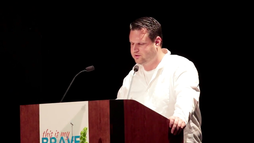 |
Listen To The ConquerWorry™ PodcastArchives
March 2016
Categories
All
|

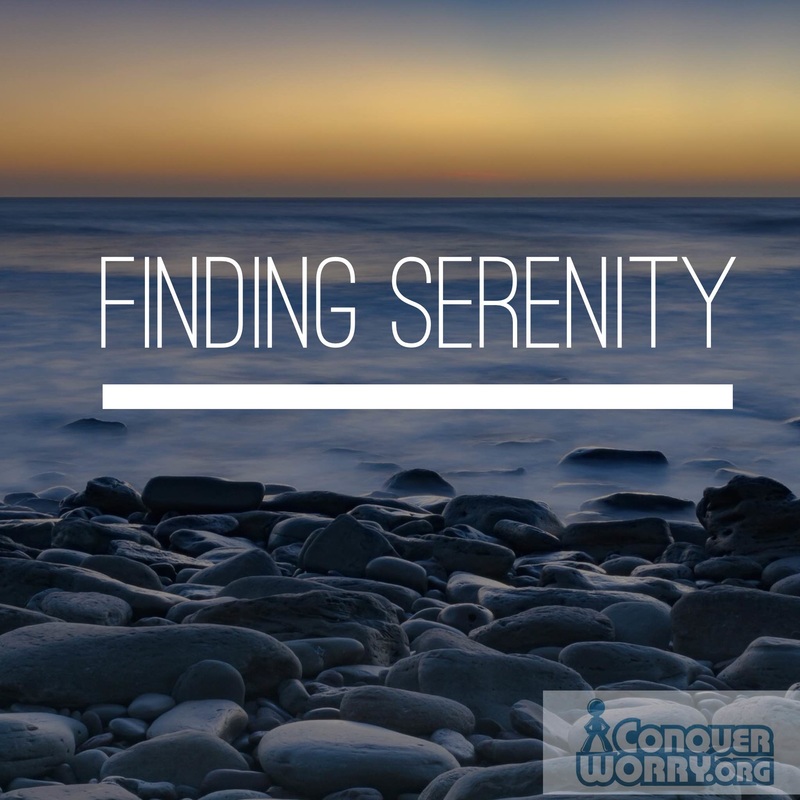




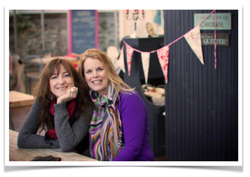
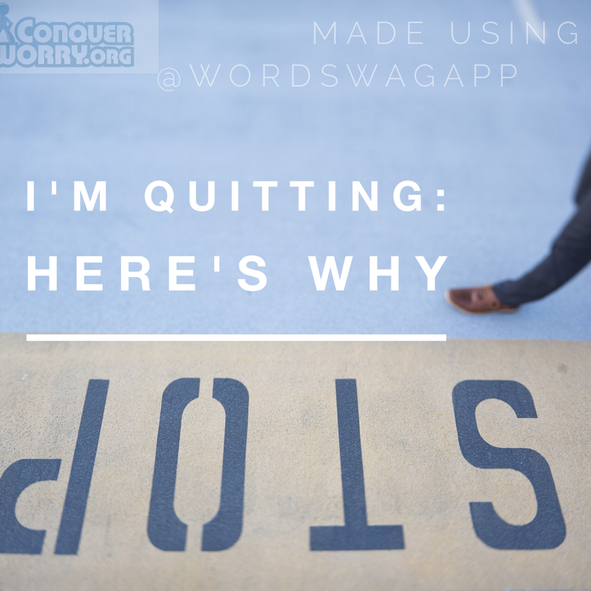

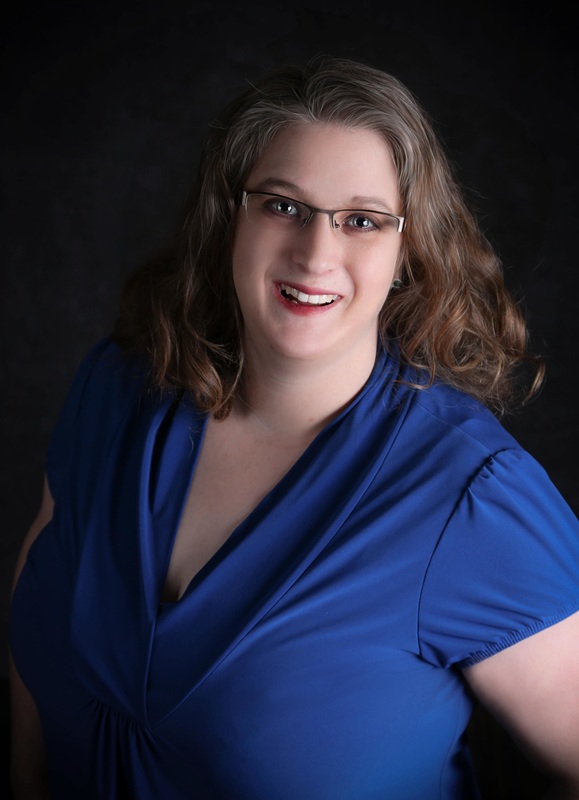
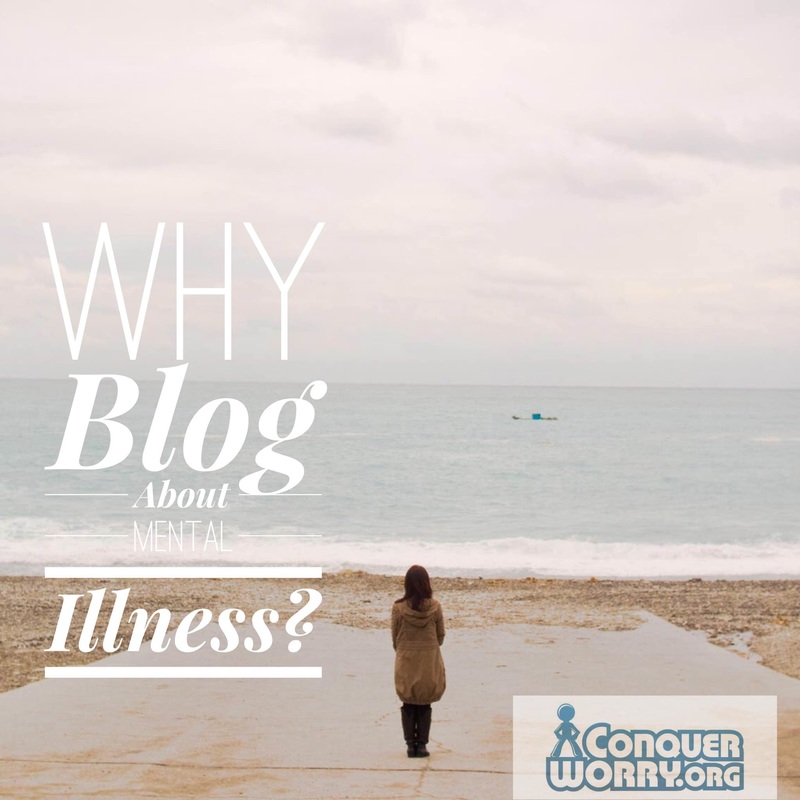
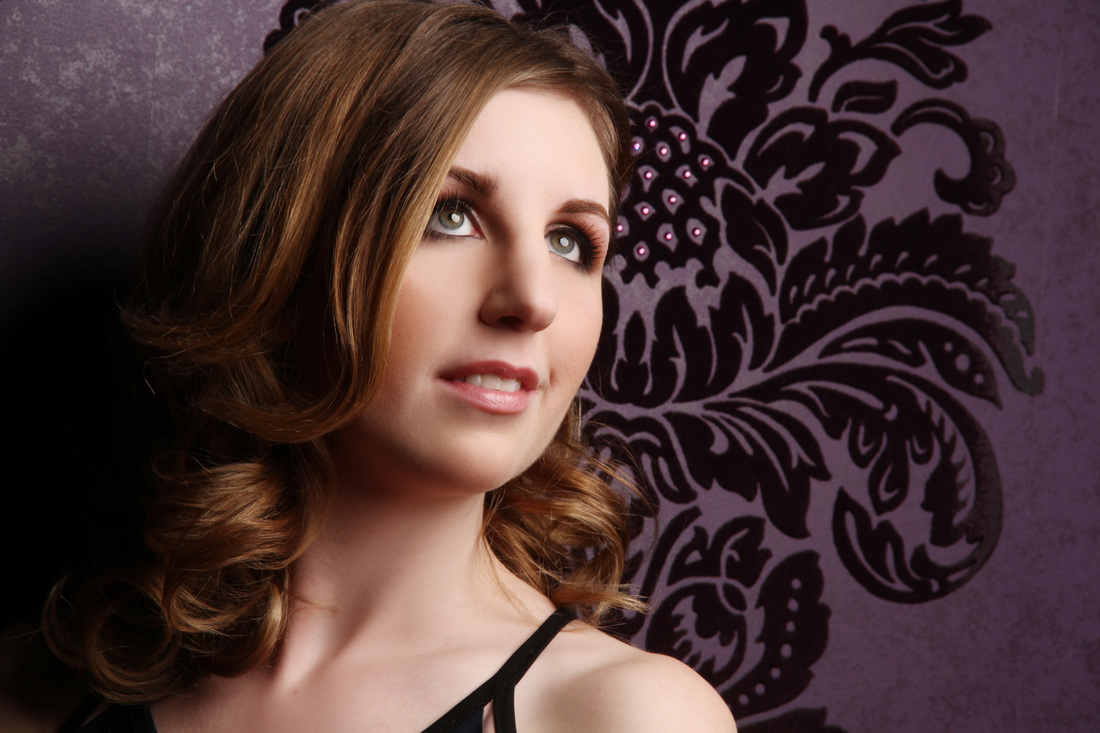
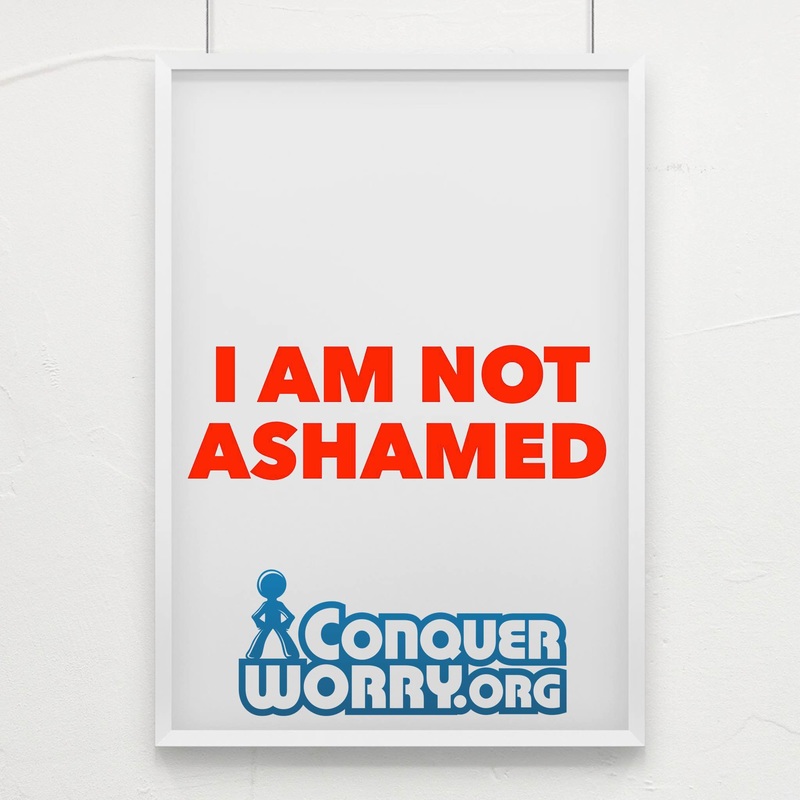
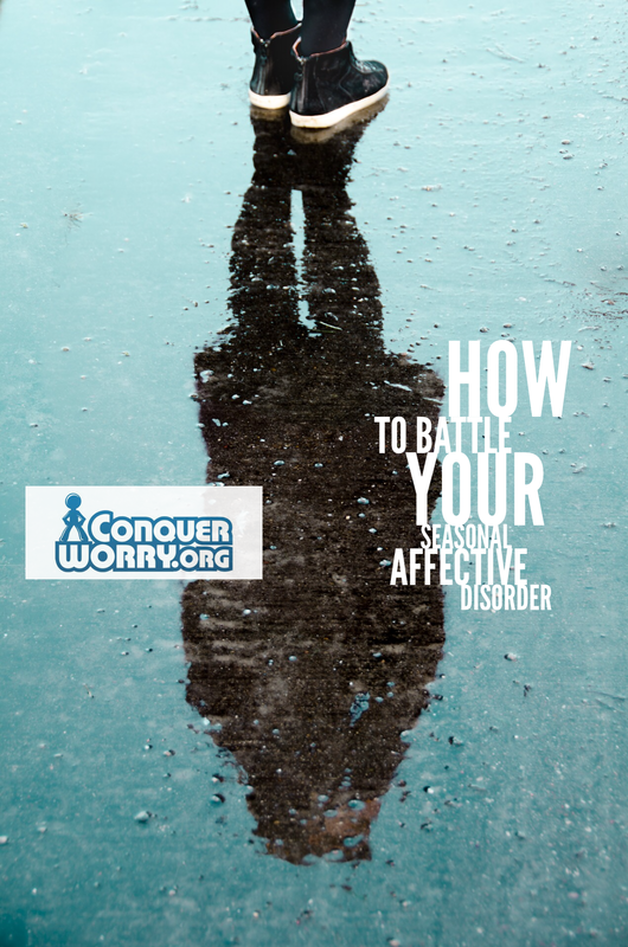
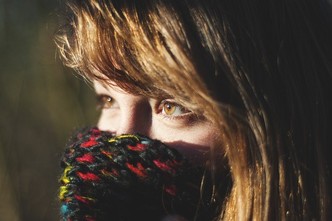

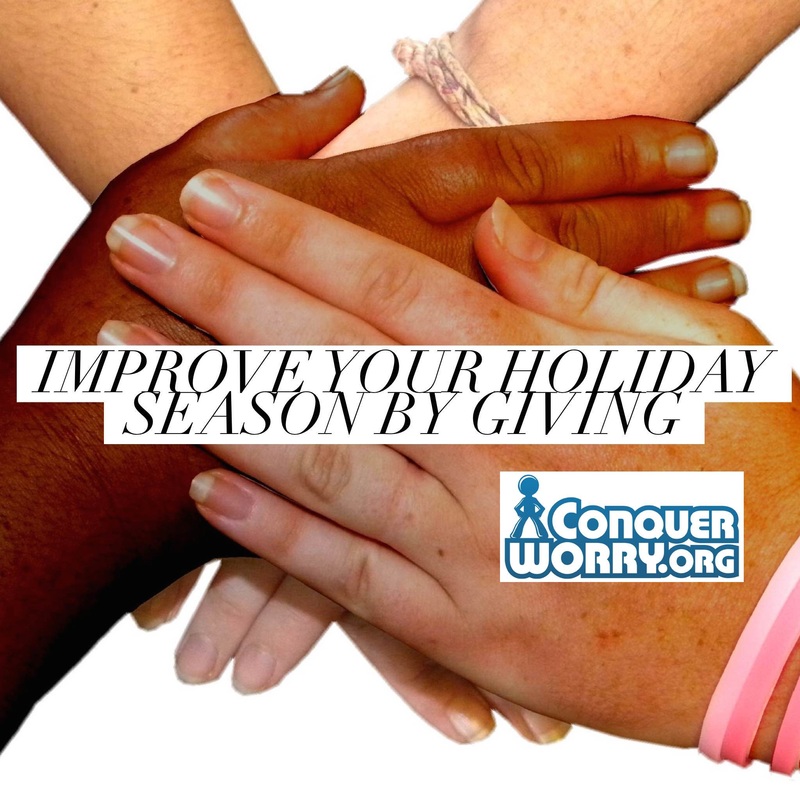
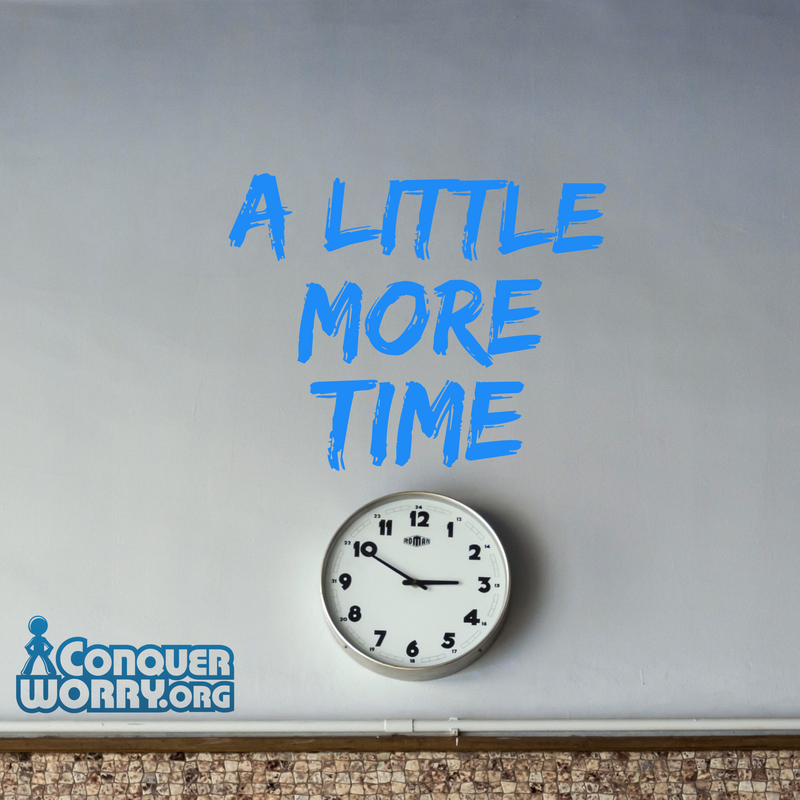
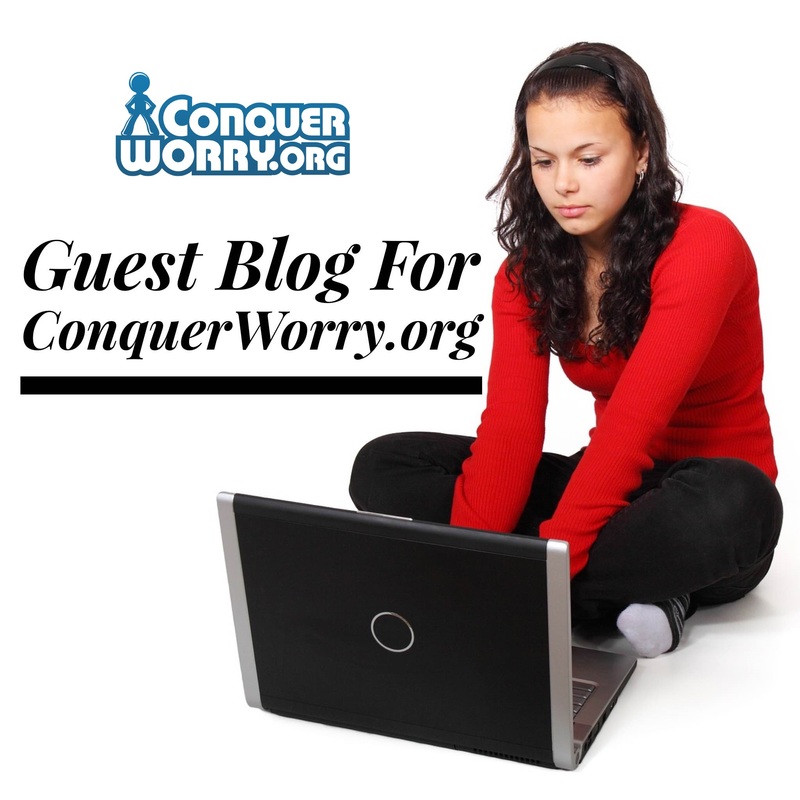
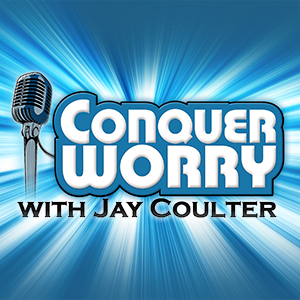
 RSS Feed
RSS Feed